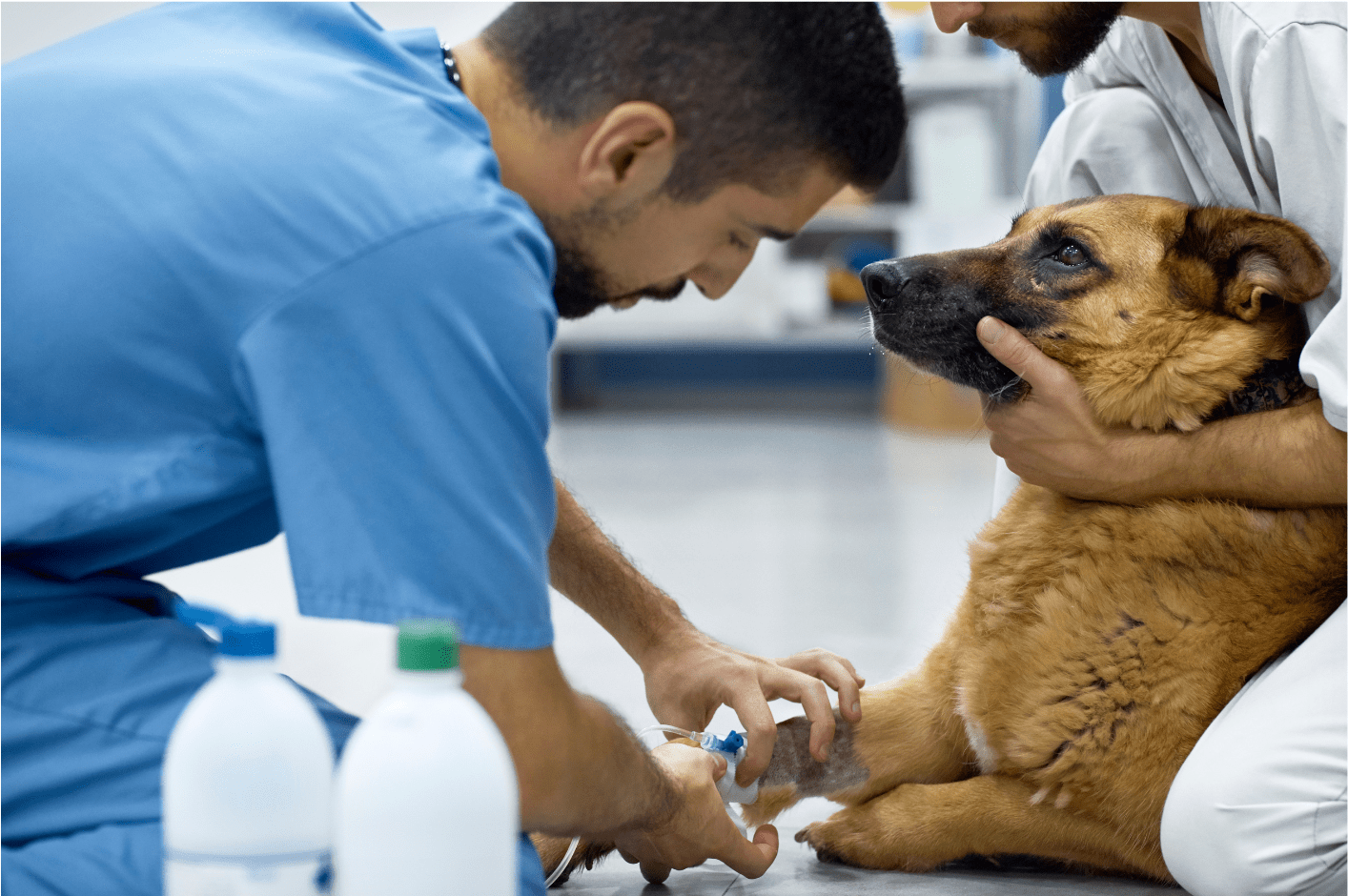Are you going to bring a German Shepherd to your home? If yes, you might be concerned about the health concerns of this breed. No doubt, Golden Shepherds are a healthy dog breed, so you are going to spend a long time with them. However, they are prone to some common health problems that you should be aware of.
Are you wondering what are the common health problems in German Shepherds? This guide comprises German Shepherds’ common illnesses, symptoms, their cure, and prevention. So, let’s start.
Diabetes
Diabetes is a common health issue in German Shepherds due to their large size and tendency to overeat whenever they get food. This condition occurs due to genetic and environmental factors and even because of proper feeding and exercise routines.
Symptoms
The symptoms of diabetes in Golden Shepherds include:
- Fatigue
- Dry mouth
- Excessive urinating
- Excessive drinking
- Swelling in the feet
Cure and Prevention
Regardless of the cause of diabetes, the right diet and exercise can help control this condition. In severe cases, your vet may prescribe an insulin injection on a regular basis to help with diabetes. This illness can be prevented in dogs, including German Shepherds, by a balanced diet, regular veterinary check-ups, and regular exercise.
Cataracts
Just like humans, German Shepherds are also prone to cataracts. In this condition, your canine friend usually has a slightly cloudy look in his eyes and becomes unable to navigate new spaces. In severe cases, cataracts make it difficult for dogs to see anything.
Symptoms
Your furry friend might show the following symptoms while having cataracts:
- Cloudy or hazy eyes
- Change in eye colors
- Decreased vision
- Change in behavior
- Eye irritation or redness
- Bumping into objects
Cure and Prevention
Proper nutrition, regular veterinary check-ups, and avoiding eye trauma can prevent cataracts in German Shepherds. If your pet develops cataracts despite these preventive measures, cataract surgery is the primary treatment option to restore his vision.
Elbow Dysplasia
Elbow dysplasia is a congenital condition that affects many large breeds, including German Shepherds. This health condition mainly affects the elbow joint and can be caused by poor genetics. Elbow dysplasia can be mild or severe, making your pet unable to walk.
Symptoms
Following are the symptoms of elbow dysplasia in a German dog breed:
- Front leg deformities
- Stiffness or limping after rest
- Pain in the affected leg
- Difficulty in getting up or lying down
Cure and Prevention
Using non-steroidal anti-inflammatory drugs, surgery, physical therapy, and maintaining a healthy weight treat elbow dysplasia effectively. However, regular veterinary check-ups, proper nutrition, and controlled exercise can prevent this condition in canines.
Hip Dysplasia
Hip dysplasia is another common health problem in large dogs, including German Shepherds. Overfeeding, exercising too much, or injury at a younger age can damage your dog’s hips resulting in hip dysplasia.
Symptoms
Here are the symptoms of hip dysplasia in German Shepherds:
- Pain or discomfort
- Difficulty in moving
- Reduced activity
- Difficulty to exercise
Cure and Prevention
Medication, physical therapy, and maintaining a healthy weight can help treat this condition. Besides, preventive measures like controlled exercise, proper nutrition, and giving joint supplements can help reduce the risk of hip dysplasia.
Bloating
Bloating (gastric dilation volvulus) occurs in German Shepherds because of overeating and not exercising too much. This leads to gas buildup in your pet’s stomach, causing pressure and difficulty breathing. Consequently, your canine friend can go into shock, which can be life-threatening.
Symptoms
The symptoms of bloating in German Shepherds are:
- Excessive drooling
- Difficulty breathing
- Discomfort or restlessness
- Pale or blue gums
- Distended abdomen
Cure and Prevention
Administering intravenous fluids, giving analgesics, and surgery are treatment options for bloating. The best way to prevent canine bloating is to ensure your pet won’t eat too quickly or too much at once. Feeding smaller meal portions three times a day can help prevent this problem.
Final Words
German Shepherds are a popular dog breed for numerous reasons. However, they suffer from common health problems like diabetes, hip dysplasia, bloating, and many others. If you are a pet owner considering adopting a German Shepherd, you should be aware of these problems. In the end, your pet’s health is what matters to your, right?



